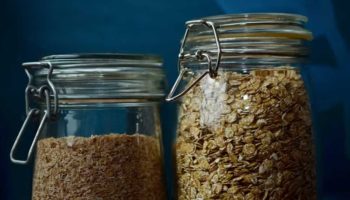The ash is often used as fertilizer to fertilize the garden. This natural solution is both economical and ecological. But be careful. Not all plants can be fertilized with wood ash. Which are and how to properly use this natural product, we tell you in this article. The use of ash on the lawn and in your own garden is widespread. This natural organic fertilizer acts on the structuring of the soil by reducing its acidity and has a positive effect on the vital activity of the microorganisms present. Therefore, we use a lot of it and everything goes. However, it is not beneficial for all plants. In this article we give you more details about the plants that do not tolerate being fertilized with this fertilizer and why?
Where and why put wood ash on your lawn?
Ash is an important source of minerals. It has a general positive effect on soil quality by eliminating several harmful species, bio aggressors and pathogens such as aphids, slugs or larvae. It also keeps away slugs, ants or all kinds of unwanted insects.
What are the benefits of potash from ash in compost?
The contributions of wood ash are many. They consist of components known to promote the growth of flora and vegetation. This natural fertilizer consists of potassium, calcium, magnesium, but also phosphorus. It directly affects the deoxidation of the soil, allowing better growth. In this sense, you can add small amounts to your compost.
How to use chimney ash as fertilizer in gardening?
It should be noted, however, that this natural mineral fertilizer should be sprinkled sparingly in small quantities in his garden and on his plants. If the hand is too generous, the ash can unbalance the soil, interfering with the assimilation and absorption of the various minerals and trace elements by the plant. It is important to settle for a maximum of ¼ lb. of ash per 3 feet per year, which could be equivalent to two good handfuls. It is also important to scatter the ash well and scrape the soil to allow its complete integration. You can incorporate these ¼ lb. in 10 quarts of water and water your land or the soil of your plants in the spring.
Which plants do not like ash?
As mentioned above, wood ash minimizes the acidity of the soil. In this sense, plants and vegetable crops that grow and thrive in acidic soil do not do well with ash. Among them we can identify:
- the azalea
- the hydrangea
- the heather
- the zinnia
- the heather
- roses
- Conifers should also be avoided at all costs, especially juniper, spruce, cedar, larch and fir.
What vegetable garden plants should not be fertilized with ash?
If you grow fruits, vegetables or plants at home, it is also important to identify those that should not be sprinkled with ash. Among them we find:
-
Radish
Vegetables grow best in moderately acidic soils with an ideal pH between 6 and 7.5. Too much acidity in root vegetables creates a significant presence of heavy metals and can cause some of the existing coloration to be lost due to lack of water. Therefore, if the soil is alkalized, the radish will not grow completely and will turn yellow over time.
-
Sorrel
The growth of sorrel is favorable and fruitful when grown in slightly acidic soil. If you plant your sorrel in alkaline soil, as it requires a lot of moisture, it will not grow properly.
-
Watermelon
Growing a watermelon is not easy, you have to take care of it. The radish grows in soil with a pH of 6 to 7.5, and lack of moisture can lead to insufficient absorption of sodium and calcium, which are essential for watermelon growth and development.
Blueberries and houseplants such as violets and orchids thrive and bloom in acidic soils. Many of the flowers that grow on windowsills cannot tolerate ash. If the soil of these plants is covered with it, the calcium present will massively reduce the acidity and cause diseases that will certainly stop flowering. Just as certain vegetables and herbs cannot be fertilized with wood ash, namely:
- Potatoes
- But sweet
- Pepper
- Eggplant
- Rhubarb
- Parsley
- Sweet potatoes
By the way, other fruit and fruit trees do not like wood ash, namely.
- Apple tree
- Fish
- Pear tree
- birch trees
- red maples
- blueberries
- raspberries
As you must have understood, keep them away from your favorite natural fertilizer so as not to upset the system of all the plants and vegetable crops listed above.



